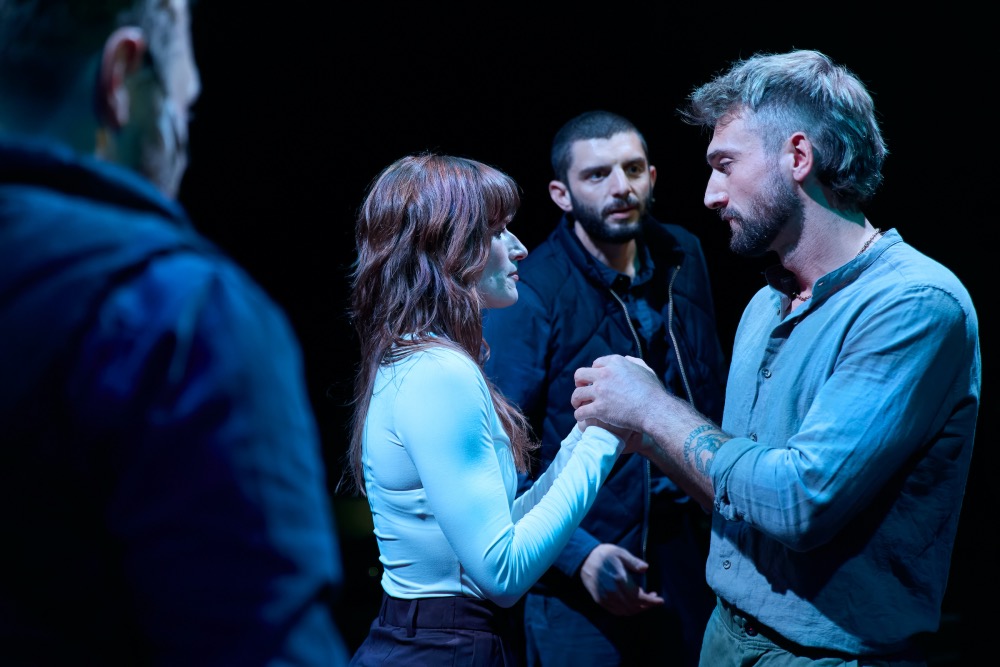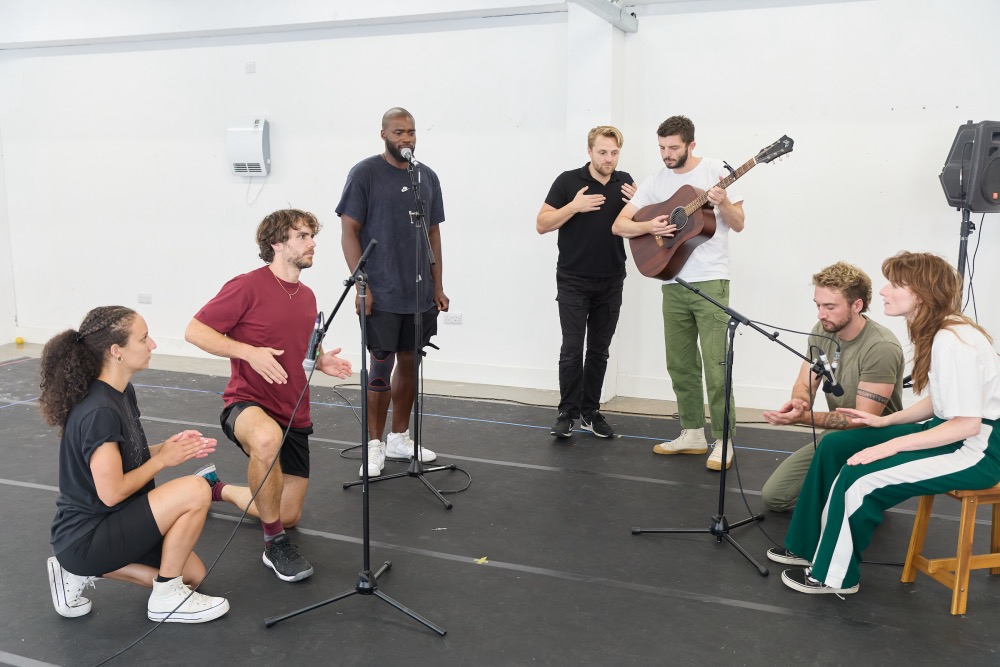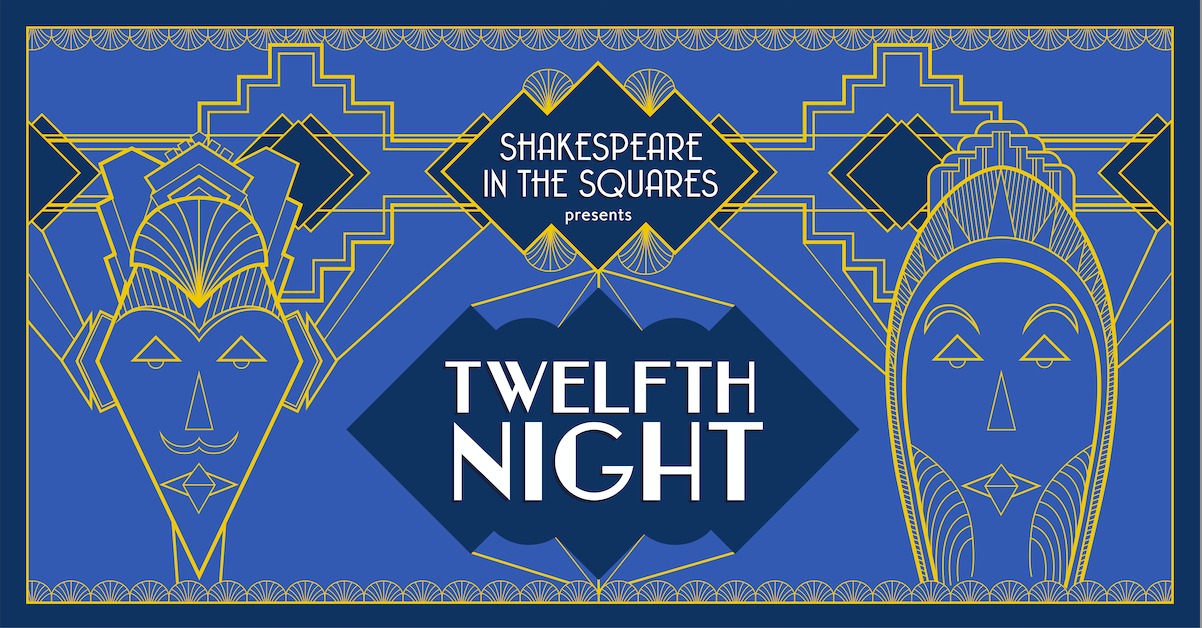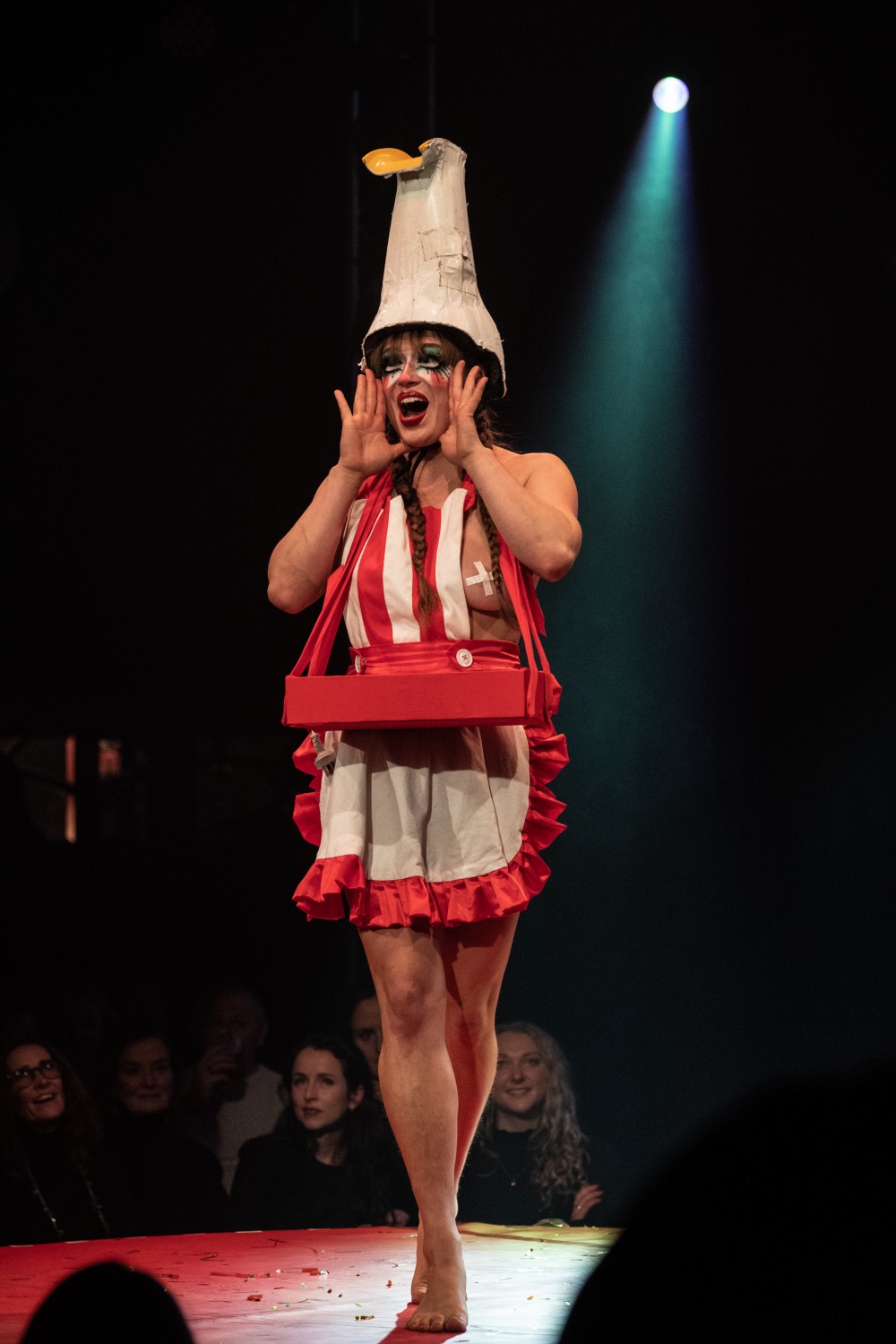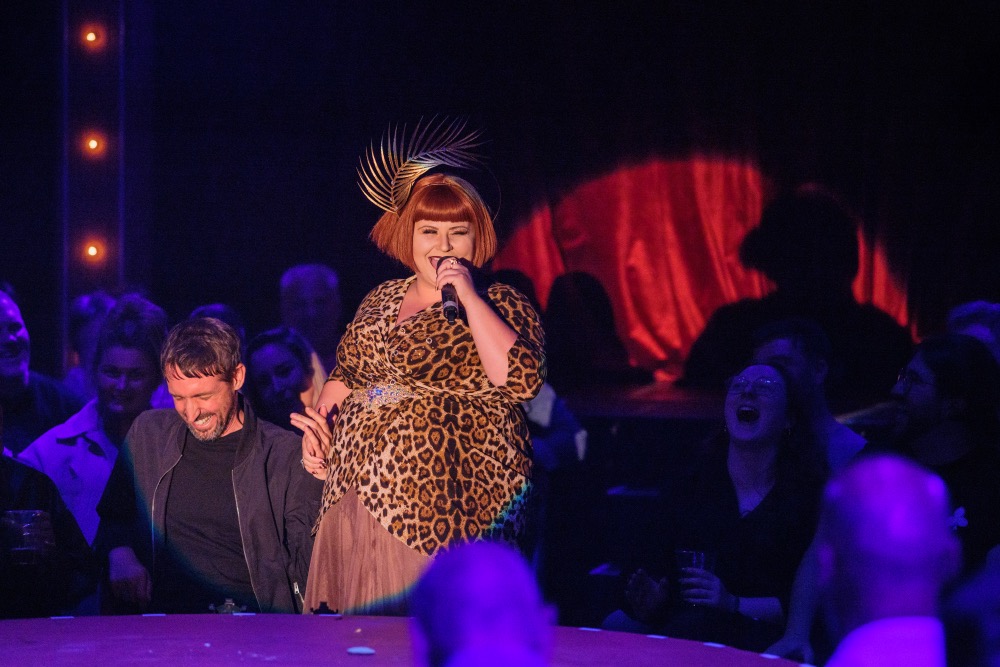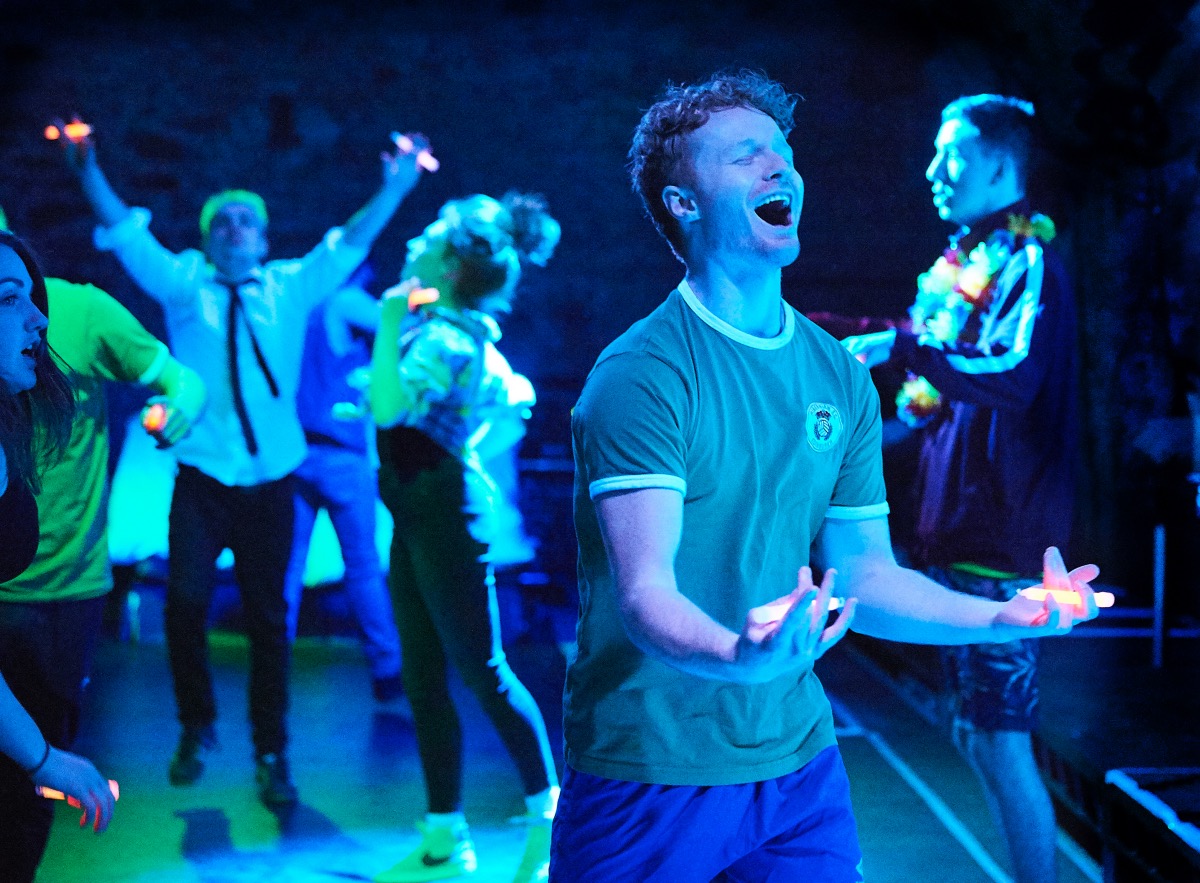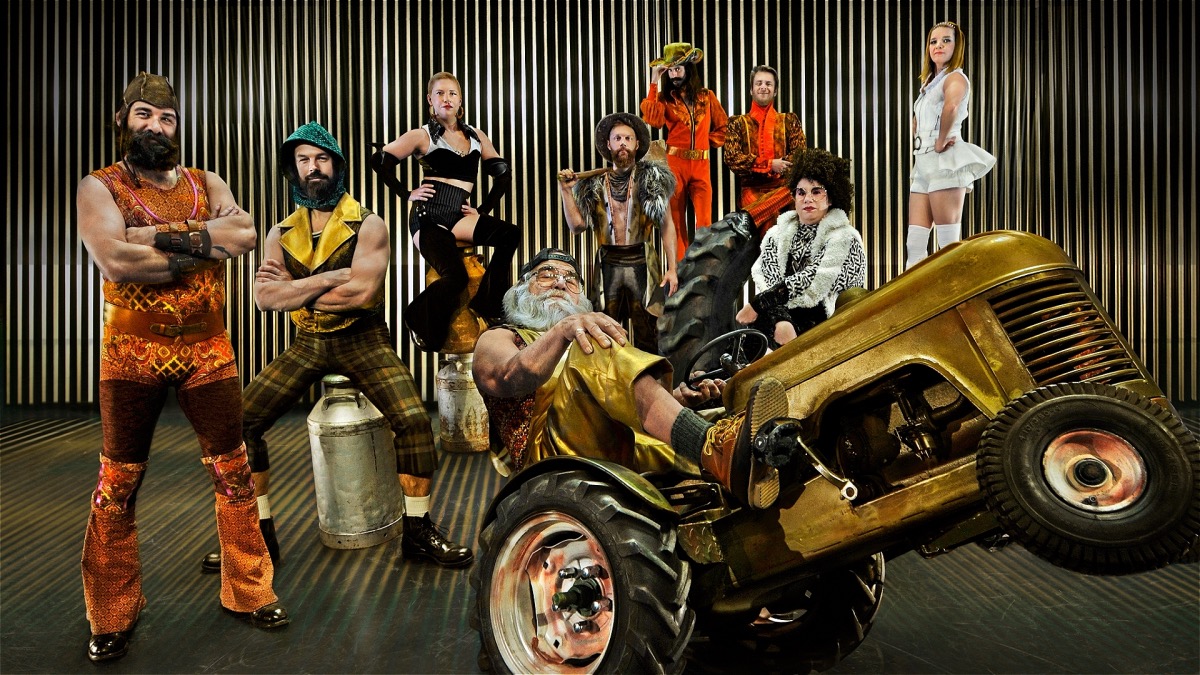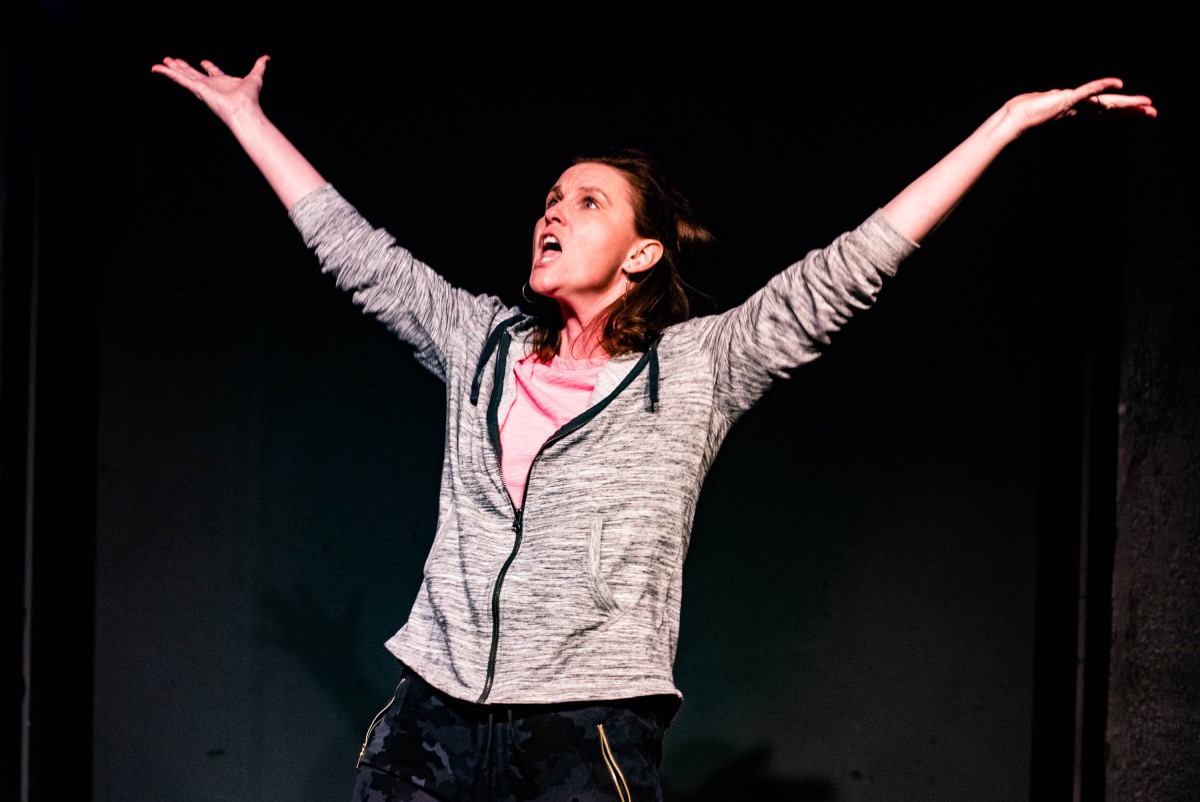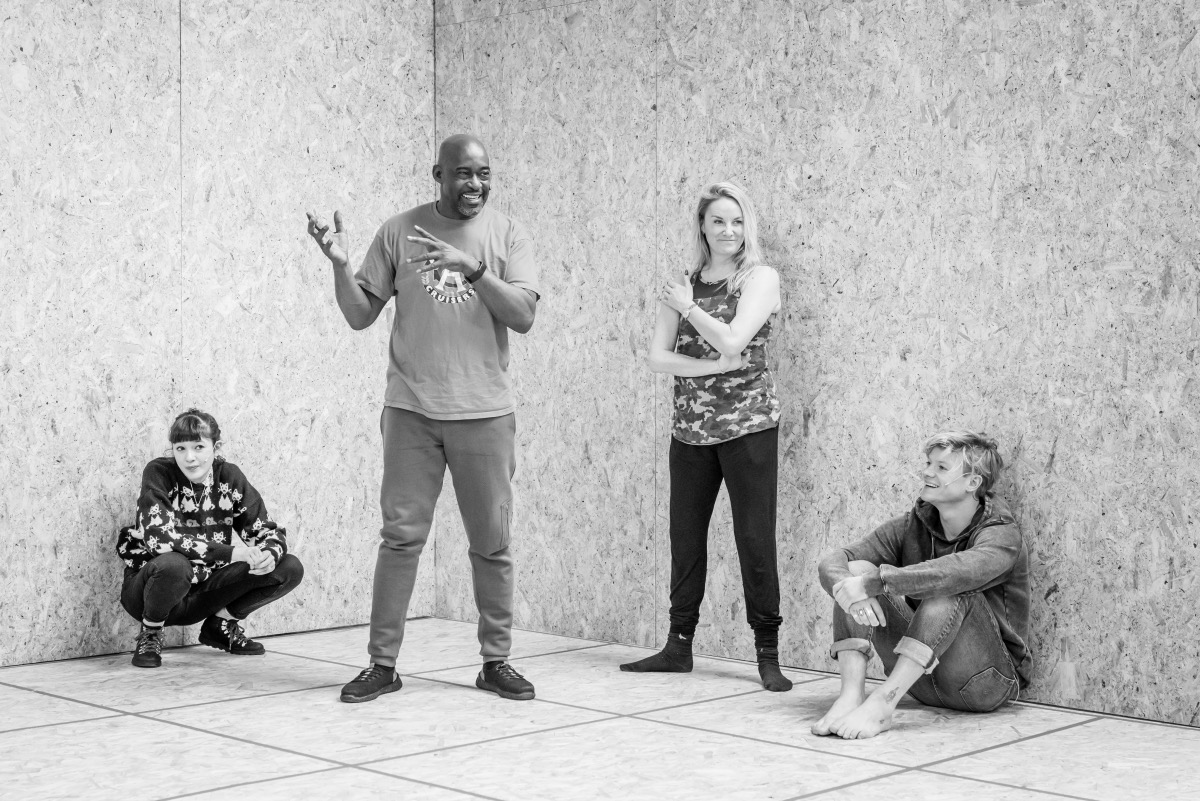Anya Reiss‘ adaptation of Anton Chekhov‘s The Seagull with Emilia Clarke and directed by Jamie Lloyd as the second show in a season at Playhouse Theatre which opened with James McAvoy in the critically-acclaimed Cyrano de Bergerac. The Seagull opens on 19 March and runs until 30 May.
A young woman is desperate for fame and a way out. A young man is pining after the woman of his dreams. A successful writer longs for a sense of achievement. An actress wants to fight the changing of the times. In an isolated home in the countryside where dreams are in tatters, hopes dashed, hearts broken and there is nowhere left to turn, the only option is to turn on each other.

We spoke to actor Danny Ashok who plays Medvedenko. He recently appeared in Alys, Always at Bridge Theatre and previously in Blood and Gifts at National Theatre, and the film, Four Lions.
What attracted you to the script?
Ashok: In many ways, the biggest thing that attracted me to the script and the project was the opportunity to work with our director, Jamie Lloyd again. I had worked with him once before on a play called ‘Guards at the Taj’ and loved his way of thinking as well as his entire approach in the rehearsal room.
Jamie is very good at giving actors the freedom to find new and interesting things about their characters and although he has a vision for the show, he’s not bound to it as many other directors might be and so you really come into the rehearsal room knowing that it’s a world of possibility.
Also it was enticing to work on a play that Anya Reiss adapted, she’s such a talented writer and what she’s done here with ‘The Seagull’ is really quite something.
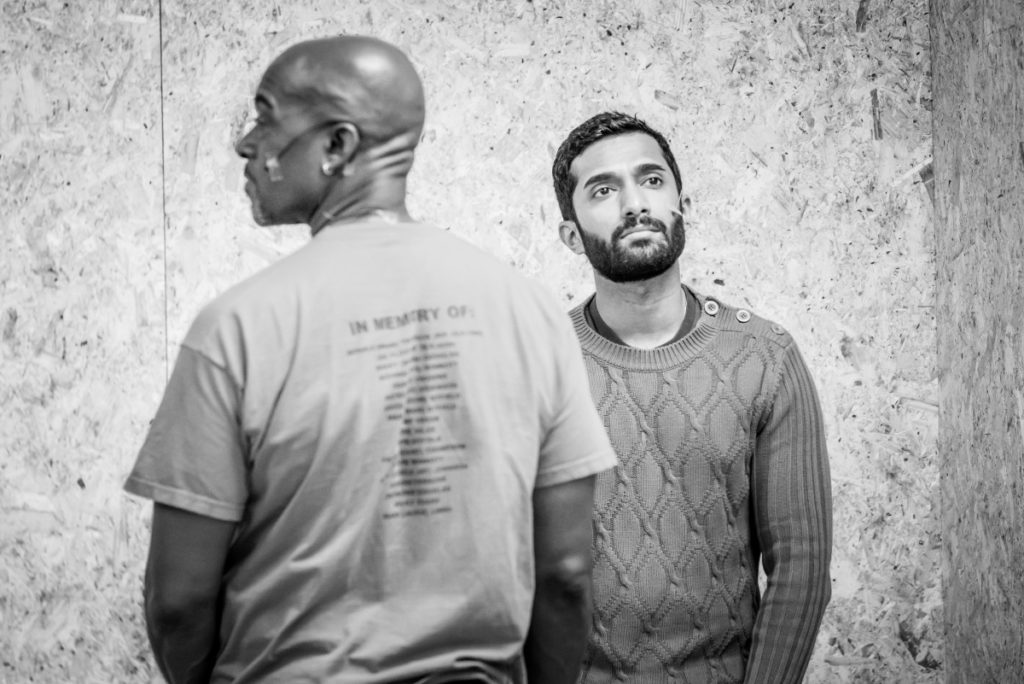
Can you tell us about the character you play?
Ashok: I play a teacher called Medvedenko, who at the start of this play you’ll see confessing his love for another character, Masha (played by Sophie Wu) who doesn’t quite feel the same way about him.
My interpretation of Medvedenko is as a socially awkward person who often seems to be tolerated by the other characters rather than liked or loved, he’s someone who seemingly has the weight of the world on his shoulders as he’s dismayed by his financial situation and how much he earns in his profession. But despite these elements of his persona, he’s a really fun character to play!
Other than your own character, what other character do you enjoy and why?
Ashok: I think every character in this play brings a different energy to the story, but I love watching Arkadina, played by Indira Varma; the character is so completely outrageous at times but so entertaining.
I also love watching the character Trigorin, played by Tom Rhys Harries. Tom is a really smart actor who is constantly making these interesting, creative decisions about his character and that’s really enjoyable to watch.
What are you most looking forward to about performing in this play?
Ashok: It’s always a lovely feeling in a play when the cast as a collective really just want to tell the story. That’s what we have here; there are no egos, we just want to tell this great story in the best way possible.
Stuart Burt (Casting Director) and Jamie have really assembled not just a talented group of actors but also a pretty good bunch of people too. So, in answer to the question, performing with this group of actors is really what I’m looking forward to more than anything.
But as a side note, I’m also so very excited that The Jamie Lloyd Company has partnered with British Airways to try and make the West End more accessible to under 30s, key workers, and those receiving government benefits.
One of the major problems with West End theatre is really that ticket prices are hiked up so much for certain shows that it almost feels extortionate for a large number of people, who then avoid the theatre as a result.
Now, every West End play has tickets that are on the pricier side of the scale but the difference here is that across the season, there will be 15,000 tickets priced at £15, and a further 15,000 tickets given away for free to first time theatre goers.
This, to me, is such an exciting first step to make theatre more accessible to people especially those that have never been to the theatre before.
What do you think an audience will enjoy about the play?
Ashok: I think people somewhat familiar with the work of Chekhov will come in with a preconception of what they think they’ll see in this production and I think they’ll be pleasantly surprised because this won’t necessarily look or feel like what they’ve imagined or possibly seen before.
One of the major themes in this play is really that of love; be it mutual, unrequited or unequal and the human connection that comes with that. I think anyone coming to see the show, no matter what their age or background will be able to relate to this in their own way and hopefully that will add to their enjoyment of the show: It’s Chekhov, but not as you know it.
The Seagull opens on 19 March at Playhouse Theatre and runs until 30 May.







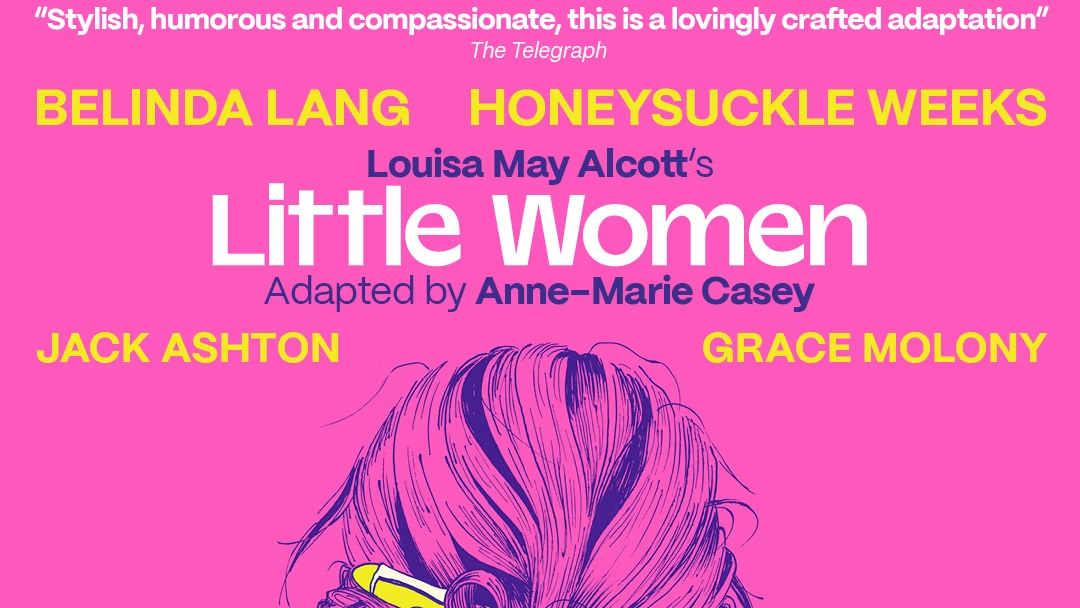

![Antigone [on strike] | Review Ali Hadji-Heshmati and Hiba Medina in Antigone [on strike] at Park Theatre, London. Photo: Nir Segal](https://theartiscapegallery.com/wp-content/uploads/2025/02/Antigone-on-strike-photo-by-Nir-Segal-D1_Standard-180x135.jpg)






